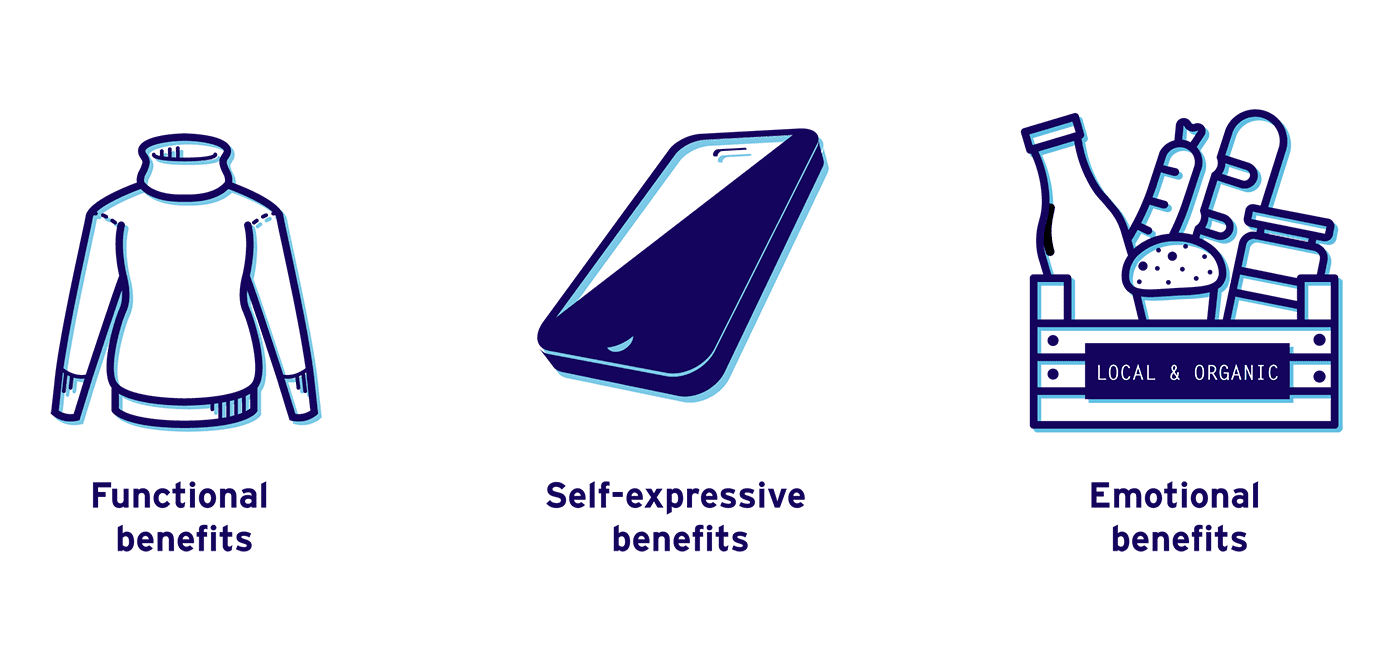Elements of a product’s value proposition: Functional, self-expressive and emotional benefits
As a startup, when developing your value proposition, remember the definition for value proposition: “A product’s value proposition is a statement of the functional, emotional and self-expressive benefits delivered by the brand that provides value to the target customer.”
What are functional, self-expressive and emotional benefits?
A product’s functional benefits
Functional benefits are based on a product attribute that provides the customer with functional utility.
The goal is to select functional benefits that have the greatest impact with customers and support a strong position relative to competitors. However, it is important to keep in mind that functional benefits often fail to differentiate, can be easy to copy and may reduce strategic flexibility.
Examples of functional benefits include the phone capability of an iPhone, the thirst-quenching offered by a bottle of water and the warmth of a wool sweater.


Self-expressive benefits
Self-expressive benefits provide an opportunity for someone to communicate his or her self-image.
They heighten the connection between the brand and the customer by focusing on something linked to his or her personality. Self-expressive benefits focus on the act of using the product, as opposed to the emotional benefits associated with the result of using the product.
A self-expressive benefit can include the elegance and the feeling of being cool projected by the Apple iPhone, the raw masculinity projected by the Harley-Davidson motorcycle brand or the luxury displayed by carrying a Louis Vuitton bag.
Emotional benefits
Emotional benefits provide customers with a positive feeling when they purchase or use a particular brand. They add richness and depth to the experience of owning and using the brand.
Examples of emotional benefits include the “feel-good” factor when purchasing groceries carrying a fair-trade label or when donating to charities such as the Heart & Stroke Foundation. Buying local or organic foods has also started to carry emotional benefits, although most brands in these areas are niche brands that are currently not well known to others than enthusiasts.

